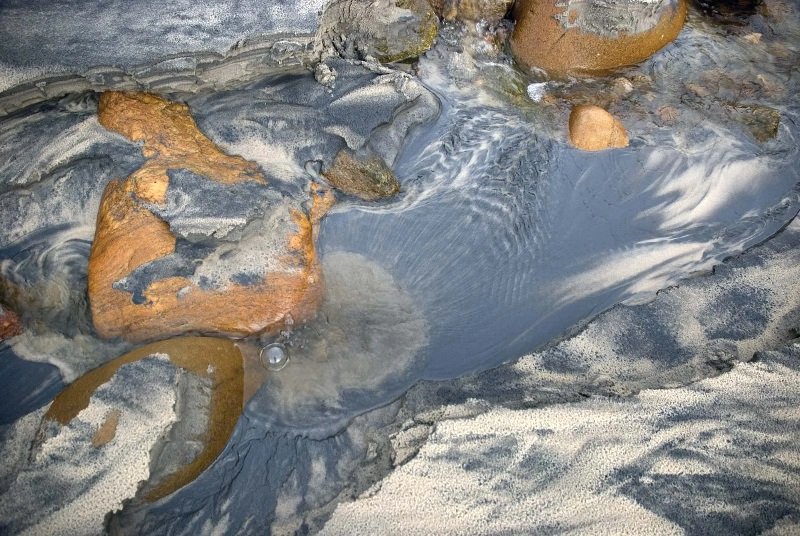
Addressing Oil and Water Contamination Problems: The Role of Above-Grade Systems
Oil contamination of water is a pervasive problem for many traditional industries, such as manufacturing and energy production. When oil enters water in an industrial setting, the resulting mixture creates a variety of potentially hazardous effluents. If contamination issues are not dealt with properly, they can cause catastrophic effects ranging from fines from environmental regulators to unplanned and costly downtime. Adding oil degrades water’s natural balance and complicates the treatment and disposal. Companies must implement robust solutions to separate and treat the contaminated water to ensure they remain compliant with environmental regulations and avoid costly downtime or damage to their reputation.
Circumventing the issue of oil and water contamination would imperil the ideal of environmental stewardship and the goal of operational efficiency. Environmentally, if no treatment is given to remove a contaminant, water could be released into natural ecosystems with detrimental consequences. This would be both unlawful and morally wrong for any company that intends to operate as a viable and functioning enterprise.
High-quality treatment systems prevent equipment failure caused by oil buildup to maintain smooth, efficient operations. In addition, investing in suitable systems can restore customers’ and regulatory agencies’ confidence to continue business transactions.
Understanding Above-grade Systems
Above-grade systems are treatment and containment systems installed above the ground instead of below-grade or underground. They are designed to efficiently treat and contain oil and water mixtures and other contaminants while ensuring fluid extraction and sample inspection. The advantage of being installed above the ground is that they are more easily maintained and inspected than below-grade systems.
A typical above-grade system offers modular components such as oil water separators, containment sumps, and other filtration or treatment devices. This architecture can be customized as needed for businesses contaminating their waste frequently or on a large scale. For industries that require additionally robust safeguards, above-grade systems offer a modular solution that is easy to track and manage in the long run without any hassles.
The Role of Oil Water Separators
In these designs, the water, once contaminated, can be channeled in tanks with oil-water separators equipped with media to support the phase separation process through the different densities of oil and water. Since oil is less dense, it tends to rise to the surface of any homogeneous mixture (without stirring). Oil water separators simulate a stratification process, letting the oil rise to the surface.
That separated oil can be collected and either disposed of or recycled. The cleaned water can then be discharged or reused. This means the oil doesn’t stream into the environment or damage downstream specialized gear. Regarding filtration effects, some of the top-grade oil water separators rely on the combination of physical and chemical processes to cater to varying levels of pollution and unstable flow, which are up for diverse industrial purposes.
Other good reasons exist to install oil-water separators in your above-grade system. You will be able to meet and, in most cases, exceed the regulatory requirements for removing oil from wastewater that must be released.
Oil water separators improve the performance and longevity of your machines. Removing the oil from the water earlier in the process prevents it from accumulating inside your system and causing blockages or corrosion, as well as other types of damage that require costly maintenance. Removing the oil from your water early prolongs your equipment’s life and saves money on operating costs.
Key Advantages of Above-Grade Systems
Easy Maintenance and Accessibility
Perhaps the greatest benefit of above-grade systems is accessibility. Since above-grade systems are placed on top of the ground, it is much easier for the workforce to perform daily functions such as inspection, repair, and maintenance. Most operations reduce maintenance time and cost because excavations and tight access points are unnecessary optional steps to complete the tasks.
This ease of access also means that problems can be recognized and repaired sooner, limiting downtime. System maintenance is critical to operating your oil water separator and other system components, and above-grade systems keep everything in working order.
Effective Separation of Oil and Water Contaminants
Above-grade systems, often equipped with high-quality oil water separators, are an excellent way to ensure that your discharge water meets the environmental standards necessary to be released into local waterways or used in your operation.
High quality oil water separators use clever techniques to maximize oil removal efficiency. By spending good money to get the job done right the first time, you can achieve the highest level of compliance and feel good about your environmental stewardship. Your above-grade system is now ahead of the environment in general and industrial daylighting in particular.
Conclusion
In summary, businesses dealing with oil or water contamination must handle spills and leaks adequately and effectively. Applying the above-grade systems, especially with high-quality oil-water separators, will be the best choice as this is the economical, accessible, and eco-friendly solution for your business. Your water can flow properly to avoid environmental pollutants and damage.
Since the right system can be perfect for what you have experimented with here, it will protect your business from downtime and fines and contribute to a more sustainable future in the long run. Invest in above-grade systems with oil-water separators to reap long-term benefits for your business and the environment.
Read More: Buy Gold & Silver


